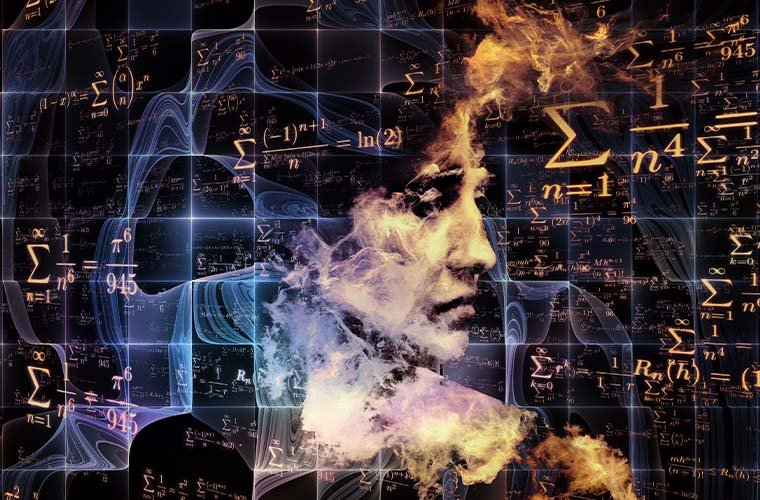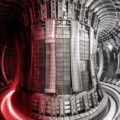A recent study published in the journal Cognitive and Behavioral Neurology proposes a new theory of consciousness, suggesting subjective awareness is merely a memory system that records our unconscious interactions with reality.
Unique to other theories on the mystery of consciousness, researchers propose that the majority of the time, humans do not directly make decisions or perceive the outside world. Instead, these activities are performed unconsciously and then milliseconds later we consciously remember doing them.
“A vast majority, if not all, of human behavior is actually performed unconsciously and consciousness is simply the memory of having performed specific actions,” said Dr. Andrew Budson, a professor of neurology at Boston University, in an email to The Debrief.
Budson, the lead author of the paper titled Consciousness as a Memory System, says that the idea that all our decisions and actions are unconsciously made–and that we simply fool ourselves into believing we consciously made them–may lead to some anxiety-inducing questions about free will.
However, researchers note that several studies have already demonstrated how conscious awareness of decisions or activities only seems to occur after physiological actions are unconsciously performed.
“This order is incompatible with the idea that perceptions, decisions, and actions are only possible when conscious awareness and thought are present,” wrote researchers.
Neurophysiologist Dr. Benjamin Libet, a pioneer in the field of human consciousness, demonstrated the supremacy of unconsciousness over conscious thoughts and actions in a series of groundbreaking experiments in the 1980s.
Measuring study participants’ neurological electrical activity when asked to carry out a series of simple tasks, Dr. Libet found that regions of the brain responsible for movement become active a few hundred milliseconds before the conscious decision to perform a voluntary act was made.
Ostensibly akin to quantum entanglement and Albert Einstein’s “spooky action at a distance,” four decades later, there is still no majority agreement on the interpretation or significance of Libet’s experiments. This is perhaps unsurprising, given the potential implications of Libet’s results on the philosophical concept of free will.
For his part, Dr. Libet did not believe his results dismissed the notion of free will. Instead, Dr. Libet said he found that research participants still possessed the conscious ability to “veto” an unconsciously made decision through a process sometimes referred to as “free won’t.”
Speaking with The Debrief, Dr. Budson pointed out that the theory of consciousness as a memory system also does not infringe on the concept of human free will.
“Just because our decisions and actions are ultimately made unconsciously does not mean that we do not have free will—or, at least, not any more than if we made our decisions and actions consciously,” a portion of Budson’s paper states. “If major life decisions are made slowly, over minutes, hours, days, or longer, these important decisions will almost certainly have input from both our conscious mind and our unconscious brain processes.”
Modern studies have continued to support and expand on Dr. Libet’s work and the concept that unconscious processes are the true forerunner to conscious behavior.
A 2008 study by neuroscientists at the Max Planck Institute for Human Cognitive and Brain Sciences in Leipzig, Germany, found that the brain unconsciously makes decisions up to ten seconds before a person is aware of having made a decision.
In the recent study, the neuroscientists highlight additional research showing that conscious processes are too slow to be actively involved in activities requiring split-second decisions, such as playing music or sports.
In this context, the theory of consciousness as a memory system begins to feel less abstract. For example, it’s widely accepted that professional sports teams regularly practice so that players will be able to unconsciously react to situations that occur during a game.
“We knew that conscious processes were simply too slow to be actively involved in music, sports, and other activities where split-second reflexes are required. But if consciousness is not involved in such processes, then a better explanation of what consciousness does was needed,” said Dr. Budson.
Dr. Budson and his colleagues caveat their hypothesis by noting that, “Many—perhaps most—creative endeavors, from painters to novelists, likely result from the combination of conscious and unconscious brain processes working together.”
Offering some speculation, as opposed to a rigid academic argument, researchers postulate that academic or artistic visionaries, such as Albert Einstein, Isaac Newton, Jane Goodall, or Rachel Carson, etc., may have been able to see the world beyond what the conscious mind suggests it is.
“In other words, some of these individuals may have had more access to their unconscious brain processes.”
The neuroscientists argue that consciousness originally evolved in the brain as part of the episodic memory system, allowing for the ability to “flexibly and creatively combine and rearrange memories of prior events in order to plan for the future.”
Accordingly, consciousness, as the subjective awareness we typically think of when contemplating our sentience, was likely co-opted to perform other functions not directly related to memory, such as problem-solving, abstract thinking, and language.
“We suggest that this theory is compatible with many phenomena, such as the slow speed and the after-the-fact order of consciousness, that cannot be explained well by other theories,” the paper states.
Researchers lightly wade into the enduring mystery of where consciousness comes from by suggesting that human awareness results from the collective work of the cerebral cortex, which accounts for 82% of the mass, but only 19% of the neurons, in the human brain.
“Although we consider cerebral cortex architecture as the unit of neuronal assemblies that allows consciousness to occur, exactly how consciousness arises from the cortex is unclear,” study authors note.
Researchers further acknowledge that in support of their hypothesis, they intentionally ignored many of the most significant parts of any complete theory of consciousness, such as the so-called “hard problem” or how a collection of biological material can produce subjective awareness.
Nevertheless, scientists are hopeful that their new theory of consciousness being essentially and originally a part of explicit memory, or a collective “conscious memory system,” will provide the framework for further research.
“By careful observation and well-designed experiments, examining this memory theory of consciousness may move us toward a time in the future when such questions will seem quaint, similar to questions about what constitutes the life force that living beings have or how light travels through the ether.”
Tim McMillan is a retired law enforcement executive, investigative reporter and co-founder of The Debrief. His writing typically focuses on defense, national security, and the Intelligence Community. You can follow Tim on Twitter: @LtTimMcMillan. Tim can be reached by email: tim@thedebrief.org or through encrypted email: LtTimMcMillan@protonmail.com

